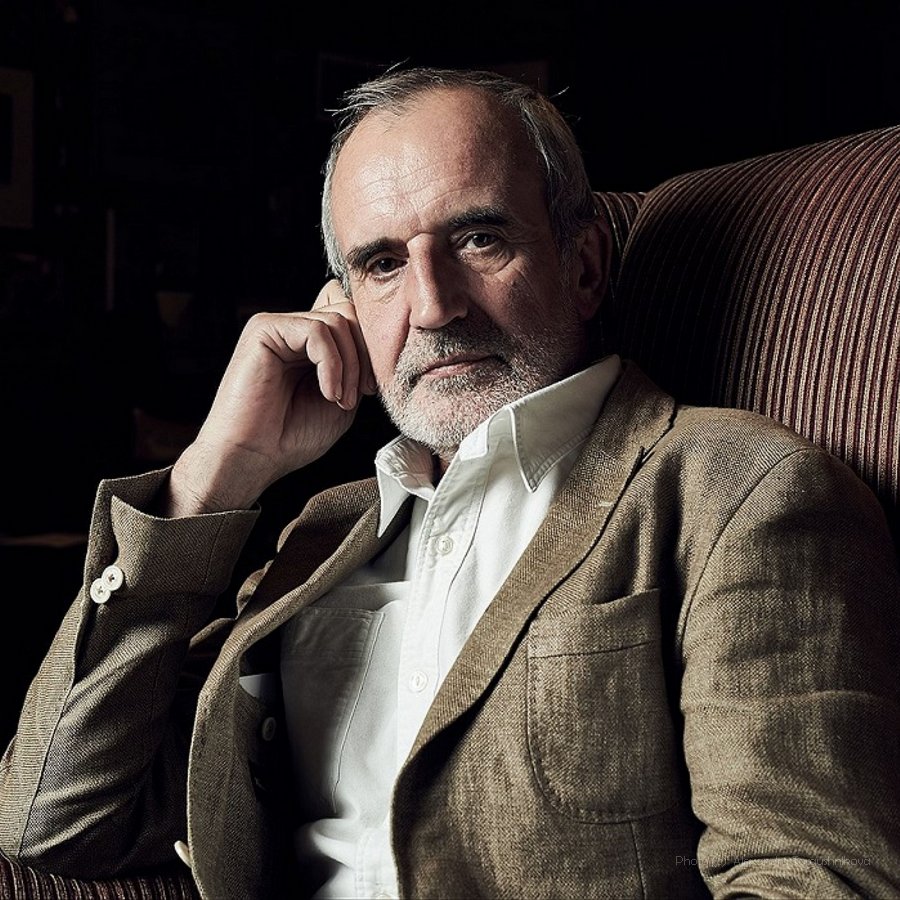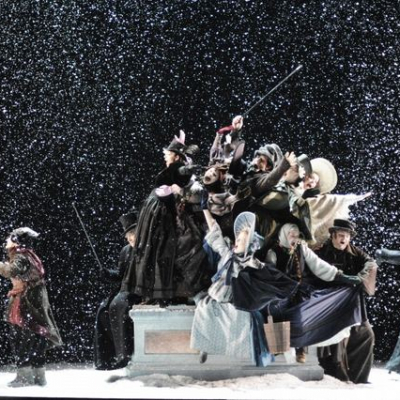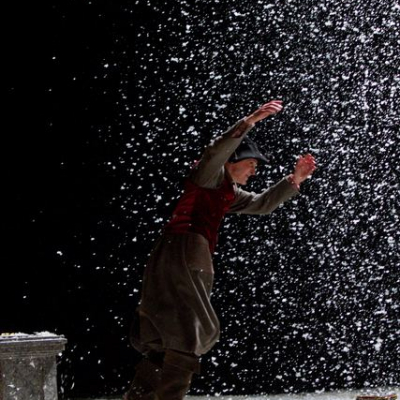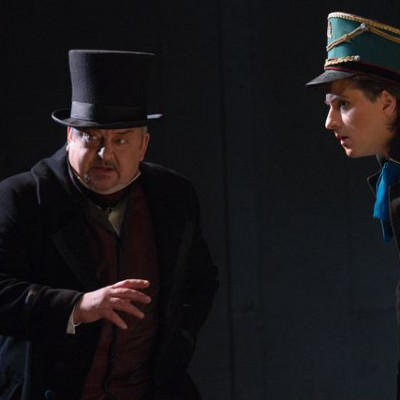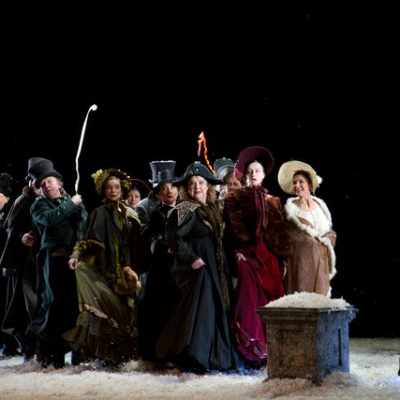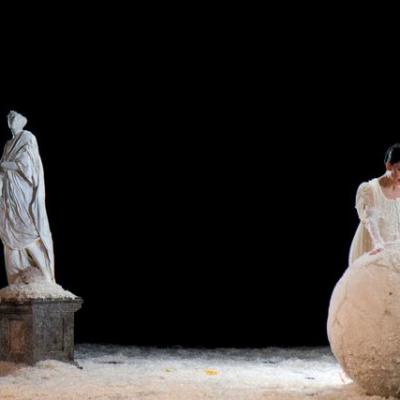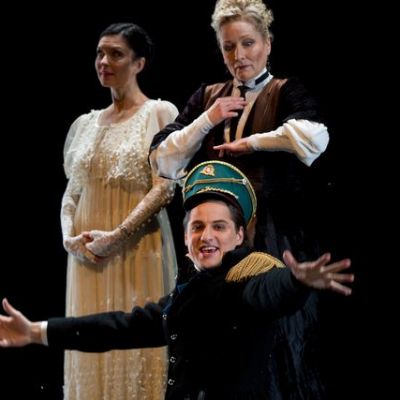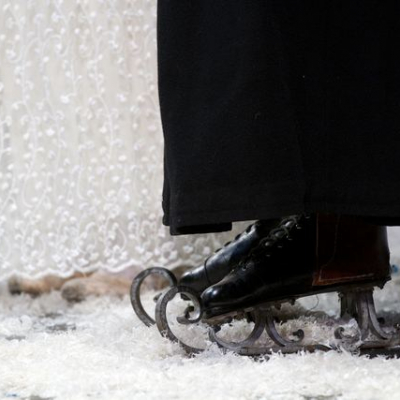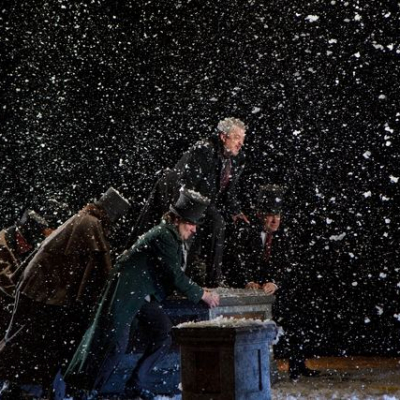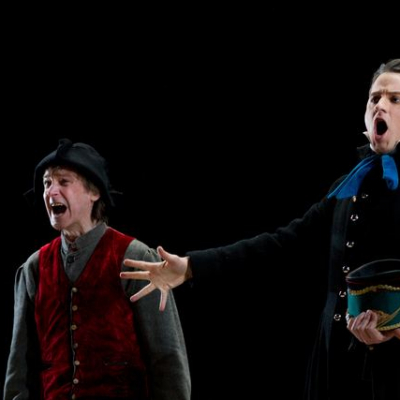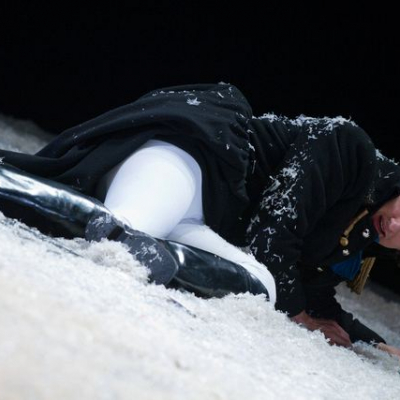Masquarade
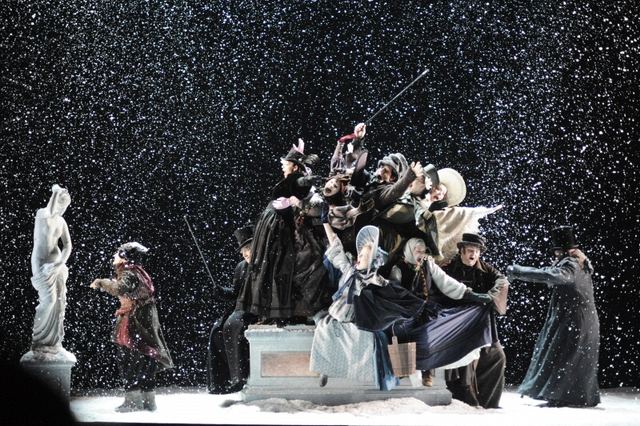
MITEM
Director: Rimas Tuminas
MITEM
2 hours 30 minutes with 1 breaks.
Act 1:
During a twilight evening in a square near the Moyka River in St. Petersburg a
group of noble men (Arbenin, Kazarin, Shpiech and Prince Zvezditch) gather to
play cards. Excitement rises as they talk about the Masquerade Ball, which they
are going later.
The Masquerade is at its high point when the Baroness Schtral, who is secretly
in love with the Prince, gives him a bracelet as a token of her affection. As
the Baroness is discussed behind her mask, the Prince does not know who she is.
The Price proudly shows Arbenin the bracelet he has received and promises to
discover the identity its beautiful owner.
At home, Arbenin notices that his wife, Nina, is missing a bracelet. This
infuriates Arbenin as he suspects that Nina has given the bracelet to the
Prince. Nina tries to reassure him that she probably lost her bracelet during
the Masquerade.
Nina goes to the Baroness Schtral's home in search of her lost bracelet. The
Prince is there and Nina explains the reason of her visit. After Nina leaves,
the Prince announce that he has Nina's bracelet and that she must be the
beautiful masked woman at the ball trying to seduce him. It is not long before
gossip about Nina's presumed infidelity begins to spread.
Arbenin is furious, he is convinced that Nina has been unfaithful to him and
wants revenge.
In the meantime, Baroness Schtral confesses to the Prince that it is she who
loves him, and as a result of her deception Arbenin now suspects his wife of
infidelity.
Act 2:
The Prince and Nina meet each other at another ball, and he returns her
bracelet, warning her of Arbenin's plans for revenge. Nina does not believe him
and refuses to take any precautions. During the evening Nina asks Arbenin for
some ice cream, which he secretly poisons.
Later that evening Nina starts to feel the affects of the poison. Arbenin talks
to her about the love and happiness that has been lost, and shame she has
caused him. He tells her that he poisoned the ice cream and she will soon die.
Nina is terrified and as she swears her innocence, she dies. Arbenin is
desperate, and begins to understand what he has done.
A stranger appears who declares that Arbenin has killed his wife. The Prince
confesses to Arbenin that there was no affair between Nina and himself and
gives him a letter from the Baroness which explains everything.
Mihail Lermontov:
ÁLARCOSBÁL
Rendező: Rimas Tuminas
Vilniusi Kis Színház, Litvánia
Mikhail Lermontov:
Masquarade
Director: Rimas Tuminas
Small Theatre, Vilnius, Lithuania,
Díszlettervező/Stage designer: Adomas JACOVSKIS; Jelmeztervező/Costume designer: Virginija IDZELYTĖ; Zeneszerző/Composer: Faustas LATĖNAS.
The music by Aram Khachaturian is also used in the performance.
Színészek/Actors:
Arvydas Dapšys, Adrija Čepaitė,Vytautas Rumšas, Inga Burneikaitė, Rimantas Bagdzevičius, Gediminas Girdvainis, Sigitas Račkys, Edmundas Mikulskis, Larisa Kalpokaitė, Eglė Čekuolytė, Almantas Šinkūnas, Jonas Braškys, Mindaugas Capas, Valentinas Tudorakė, Almantas Šinkūnas, Balys Latėnas, Jūratė Brogaitė, Rasa Jakučionytė, Vilija Ramanauskaitė.
Cast:
Arbenin - Arvydas Dapšys
Nina, his wife - Adrija Čepaitė
Prince Zvezditch - Vytautas Rumšas
Baroness Schtral - Inga Burneikaitė
Kazarin - Rimantas Bagdzevičius
Schpriech - Gediminas Girdvainis
Stranger - Sigitas Račkys
Servant – Edmundas Mikulskis
The Hostess of a Ball - Larisa Kalpokaitė
The Maid - Eglė Čekuolytė
The Bear - Almantas Šinkūnas
Gamblers - Jonas Braškys, Mindaugas Capas, Valentinas Tudorakė, Almantas Šinkūnas, Balys Latėnas
Ladies - Jūratė Brogaitė, Rasa Jakučionytė, Vilija Ramanauskaitė


